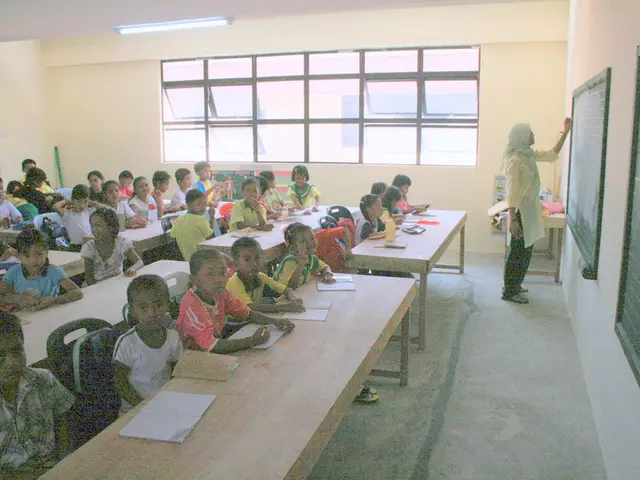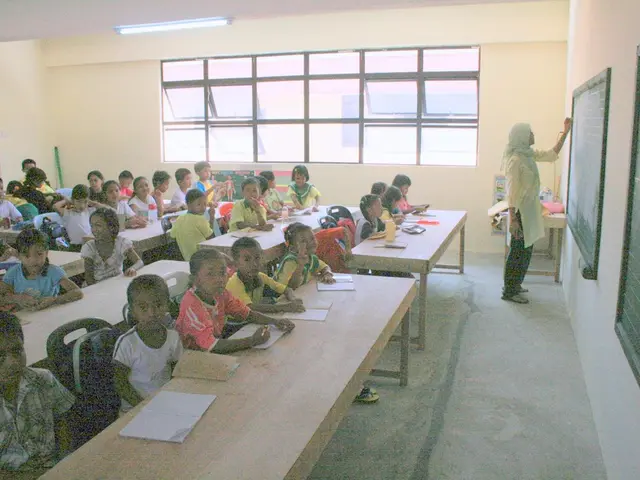Striving to Reduce Student Suicides: A Renewed Effort
=========================================================================
The Supreme Court of India has taken a commendable step in addressing the rising issue of student suicides in the country. The decision comes in response to a petition filed by the parents of an IIT student, linking caste-based discrimination to their son's suicide.
The court's decision underscores the gravity of the mental health crisis in India, a crisis that has seen student suicides surpass the number of farmer suicides due to agrarian distress.
The case is not limited to the specific incident of the IIT student's suicide but is broader in scope, highlighting the need for a change in mindset across various sectors to address the mental health crisis.
The rising incidents of student suicides are driven by multiple interrelated factors, including intense academic pressure, rigid societal and parental expectations, peer and teacher pressure, and the impact of social media on mental health.
High competition, rigid grading systems, and the immense focus on examination outcomes create stress and anxiety in students. The education system often prepares students for exams but not for coping with life's challenges or mental health struggles.
There is a strong emphasis on success and achievement, leading to pressure from parents and society. This cultural context amplifies feelings of failure and despair among students who struggle to meet these standards.
Social stress from peers and expectations from teachers contribute to students’ mental health issues. Lack of supportive environments and trained counselors in schools often leaves students without adequate emotional support.
Schools and colleges generally lack sufficient counseling services, mental health education, and awareness programs to effectively identify and help vulnerable students.
Although not extensively detailed in the sources, social media is widely recognized as a contributing factor due to cyberbullying, unrealistic comparisons, and increased social isolation, which exacerbate mental health problems in students, especially during adolescence.
Efforts to address this crisis include the Ministry of Education’s flagship program MANODARPAN, which offers counseling helplines and live interaction sessions, and the Ministry of Health’s district mental health programs providing suicide prevention and life skills training in schools and colleges.
Initiatives at premier institutes like IITs focus on stress management and resilience training for students.
Experts emphasize the need for integrating mental health education daily in schools, training educators to recognize and support mental health issues, and creating supportive environments where students can express themselves freely and get help.
The Supreme Court is investigating the causes behind the rising incidence of student suicides in the country. The creation of a National Task Force to delve into these causes is a significant step towards initiating a conversation about the need for a change in mindset to improve the mental health of future generations.
The Supreme Court's decision to address student suicides highlights the need for a change in mindset across various sectors to address the mental health crisis in India. A change in the mindset of parents, society, government, and children themselves is required to improve the mental health of future generations.
Whether the issues affecting student mental health can be fixed with an executive order or a judicial order remains uncertain. However, the Supreme Court's decision to address the issue is a step towards initiating a much-needed conversation about improving the mental health of future generations.
[1] India Today
[2] The Hindu
[3] The Indian Express
[4] The Times of India
- The Supreme Court's decision to form a National Task Force addresses the need for change in mindset not only within the education sector, but also in health-and-wellness and personal-growth perspectives, addressing the comprehensive mental health crisis in India.
- In line with efforts like MANODARPAN and district mental health programs, integrating science-based mental health education into schools and teacher training is key to fostering mental health awareness and practicing self-development across generations, ultimately contributing to overall education-and-self-development goals.







